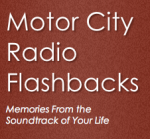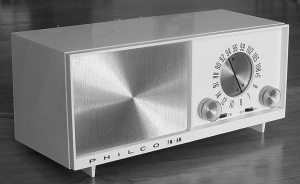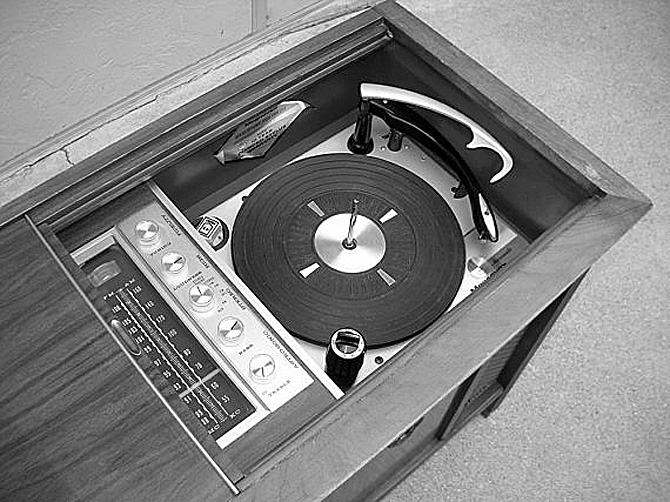![]()
 From the MCRFB NEWS archive: 1963
From the MCRFB NEWS archive: 1963
One Million Stereo FM Receivers Will Be Sold, 1963
NEW YORK — FM STEREO’S HOTTEST MARKETS. One million stereo receivers will be sold this year. Not bad for for a medium which celebrated it’s second birthday this month.

About 730,000 of the anticipated 1.4 million American-made radio-phonographs will be equipped for FM stereo reception; another 130,000 of 280,000 TV-radio-phonograph combinations will have it. Add at least another 100,000 for table-model FM stereo radios and FM-stereo equipped imports of various types, plus another 50,000 or so component tuners, and you have well over a million sets going to the public this year. (The radio-phono and TV-radio-phono estimates were made by the Electronics Industries Association; other estimates tabulated by Billboard).
FM stereo is a valuable adjunct to a phonograph. It vastly increases the consumer’s enjoyment — and the dealer’s profits. It can be sold easily with a good demonstration. The same is true of FM stereo table radio.
THERE ARE NOW 228 FM stereo stations in the U.S., and about 10 in Canada. FM stereo can truly be called a nationwide medium today. The American stations are located in 209 cities in 44 States plus the District of Columbia and Puerto Rico. FM stereo signals can be received in every one of the top 50 U. S. metropolitan market areas — and in many, many less populated areas.
FM stereo is far hotter in some areas than others, of course. In these “hot” areas, every radio-phono sold should contain FM stereo. FM listeners are subject to a constant barrage of FM-stereo talk on their favorite stations, and this talk can be converted to sales with a little effort.
These are FM stereo’s hottest cities (not necessarily in order): Los Angeles, San Francisco, Chicago, Detroit, Philadelphia, Houston, Seattle. Each one of these cities has at least 5 FM stations broadcasting in stereo. Detroit has six. Los Angeles and Seattle will soon add their sixth. San Francisco, long reputed to be the hottest FM-stereo town of all, probably deserves this reputation. With five stations already broadcasting in stereo, three more have purchased stereocasting equipment and presumably will soon begin stereo, to make San Francisco the nation’s first eight-stereo-station city.
The second-hottest group of stereo cities (in order of number of stereocasting stations) consists of San Diego, Miami (with a fifth station due to begin soon), Boston, Dallas-Ft. Worth also expecting No. 5 on the air soon). Each of these cities currently has four FM stereo program sources.
Three-stereo-stations areas are Washington; Minneapolis-St. Paul; Cleveland; Eugene-Springfield, Oregon; Madison and Milwaukee, Wisconsin.
There are at least 18 cities where listeners have a choice of two FM stereo stations. Geographically, they’re scattered from border-to-border and coast-to-coast. They are Phoenix, Birmingham, Fresno and Sacramento, California; Atlanta; Honolulu; Cedar Rapids, Iowa; Grand Rapids, Michigan; New York; St. Louis; Greensboro, North Carolina; Oklahoma City and Tulsa, Oklahoma; Portland, Oregon; Pittsburg, Providence, Norfolk, Nashville.
There’s no particular pattern of geographic location or city size in the spread of FM stereo. In many cases, a good, well-operated FM stereo station (such as San Francisco’s KPEN) will build an audience and inspire its competitors to “go stereo.”
NEW YORK, YOU WILL NOTE, is rather far down on the list. The city has never been a trail-blazing town in home entertainment. New York’s FM stereo boom may come soon, however, as at least three more stations are preparing to start stereocasting. For serious music lovers, who are now served with some stereo by WQXR-FM, there will be New York’s municipal station WNYC-FM, which hopes to eventually stereocast all of its live concert broadcasts, and ABC’s WABC-FM, which will program separately from its AM affiliate, presumably serious music. For those who prefer lighter music, the popular WPAT-FM will supplement WTFM. now programming stereo 24 hours daily.
NEXT STEREO CITIES. Between 50 and 75 more FM stations will begin stereocasting between now and the end of 1963. These are expected to open up more new markets for stereo equipment sales.
Among the upcoming new FM stereo market areas where stations are now equipping themselves to start stereo broadcasting: Mobile, Alabama; Tucson, Arizona; Boulder, Colorado; Columbus, Georgia; Boise, Idaho; Champaign, Illinois; Louisville; St. Joseph, Missouri; Los Alamos, New Mexico; Dover, Springfield, and Toledo, Ohio; Warren and York, Pennsylvania; Seneca, South Carolina; Greenville, Johnson City and Lebanon, Tennessee; Lubbock and Midland, Texas; Bellingham, Washington; Eau Claire, Green Bay and Wausau, Wisconsin; Cheyenne, Wyoming; Aguadilla and Isabele, Puerto Rico.
If your business is located in or near any of these cities, its not too early to prepare for the advent of FM stereo. Your customers should be told that FM stereo is coming, and advised to be ready for it. You should be ready for it, too., with an adequate supply of FM-stereo-equipped instruments., and armed with knowledge of what it’s all about. END
___
(Information and news source: Billboard; June 29, 1963)


![]()